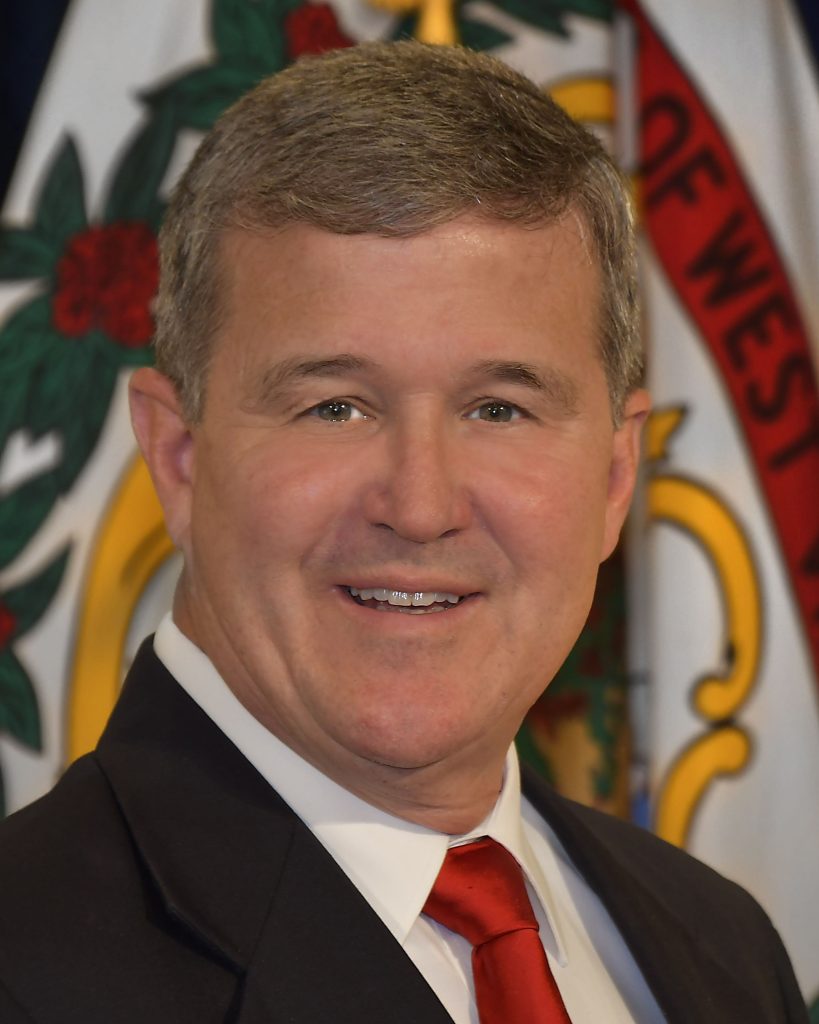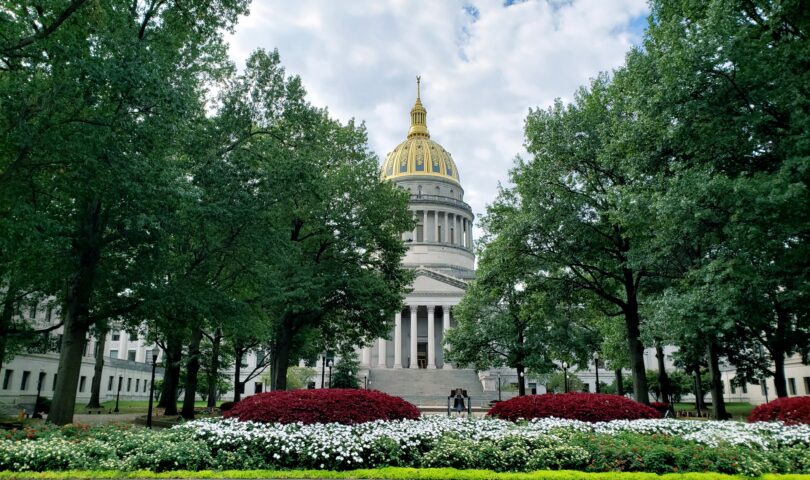MORGANTOWN – On Feb. 14 and 15, Secretary of State Mac Warner attended a secretaries of state conference in Washington, D.C., put on by the right-of-center Heritage Foundation, the Honest Elections Project and the Public Interest Legal Foundation.
On April 5, the left-of-center U.S. edition of the British publication The Guardian published an article on the conference headlined, “Dark money groups push election denialism on US state officials.”

We spoke to Warner about the conference and election security issues. Shortly after we spoke, Warner testified on election security to the U.S. House Committee on House Administration.
We’ll recap some of the highlights of the article, describe the conversation with Warner and then look at some of the highlights of his testimony to Congress.
The article
The Guardian described the three conference hosts as “rightwing groups that spread election denial lies and advocate for restrictions on voting rights,” and said they “joined forces in a secret attempt to woo top election officials in Republican-controlled states.
The Guardian reported that officials from 13 red states attended and “Heritage was careful to organize the conference amid tight secrecy.” It was a private event and not livestreamed. “Heritage and its political arm, Heritage Action for America, have spent tens of millions of dollars promoting their own model bills that impose strict restrictions on voting.”
Ken Blackwell, former Ohio secretary of state, whom the article describes as a proponent of former President Trump’s rigged election lies, was keynote speaker. The article noted that a number of other key conference attendees supported Trump’s election allegations.
Heritage Action’s Election Integrity Plan opposes same-day voter registration without verification safeguards. The plan favors verifying voter registration lists and voter citzenship, requiring voter ID, limiting absentee ballots, preventing vote trafficking through ballot harvesting, allowing election observers complete access and prohibiting early vote counting.
The plan anticipated a two-year, $24 million campaign – $3 million per state – targeted at Arizona, Florida, Georgia, Iowa, Michigan, Nevada, Texas and Wisconsin.
Warner responds
Warner said the article was written to push a certain agenda. Of the conference, “There was nothing secret or nefarious about it.”
He said Heritage works to educate elected officials, in this case on election integrity and security. And secretaries of state can bring to such gatherings their own experiences that have worked, which other states might want to incorporate.
“I’m always bragging on West Virginia with our balance between access and security,” he said. West Virginia has 10 days of early voting, and absentee voting but not no-excuse – there are 11 reasons. “Things are just working very well in West Virginia, and when I carry that message back to places like Heritage,” other states have an opportunity to learn.
Both sides – left and right – have their think tanks that share ideas and best practices, he said, and both put money behind their causes and candidates, that’s politics. Democrats are oriented toward access, which is good, but needs to be balanced with security or it opens up possibilities of fraud or the appearance of impropriety, and feeds conspiracy theories.
“The only way we’re going to solve this is to get that balance between access and security,” he said.
We talked about the 2020 election and about measures Heritage and its partner groups support.
“I think there is reason to question the 2020 election but that’s not to say we should go back and try to change it at this point,” he said. We need to focus on 2024 and get it right, and learn from 2020.
President Biden was elected president, Warner said, but the question goes back to votes outside the law, and at least three states had more votes outside the law than the margin for error, possible as many as six states.
Pennsylvania courts stepped outside the law to accept ballots three days after the election was over, he said. Georgia and Wisconsin used drop boxes not expressly permitted by their legislatures, raising concerns of ballot trafficking. Michigan accepted ballots not verified with signatures or addresses. “I think we need to make sure that votes that are cast and counted are inside the law, are approved by the legislative process.”
It’s right for people to question the 2020 election, but not to turn back and redo it at this point, he said. It’s better to examine the issues that arose and have state legislatures decide if those issues were valid. “I think we will all be better served if we look at those examples and determine if those calls were proper, should they be made again.”
The U.S. Constitution says state legislatures set the time manner and place of elections, not the courts or secretaries of state or attorneys general, he said.
We talked about a couple specific issues. One was drop boxes. West Virginia law, he said, allows a person to bring in only two ballots, to serve immediate family. If they bring in more than two it raises concerns of authenticity.
And with a drop box, he said, there is no person to observe, often no cameras or lighting. Those ballots may be legal, maybe not. Wisconsin had 520 drop boxes, and the state Supreme Court after the election ruled drop boxes illegal and said the legislature must put them in code if it wants to use them.
Related is the issue of ballot harvesting, where someone might go collect ballots at a nursing home, perhaps wrongly signing ballots with names of people not eligible or competent to vote, for example.
The other issue was same-day registration. People want their results on election night, he said. The longer the results take, the more concerns arise. With same day, the votes can’t be counted until the county clerk validates them, which takes place after the election. West Virginians can register up to 21 days before an election, which gives clerks time to verify the registrations.
West Virginians can register online 24-7, he said, so he doesn’t see a need for same day. Likewise, he doesn’t see a need to continue some of the exceptions made during COVID, when the state was under stay-at-home orders. “We stayed within the law” and people voted absentee with a justifiable excuse. “There’s no need to be revisiting that.”
Congressional testimony
Before the committee on April 27 was the American Confidence in Elections Act: State Tools to Promote Voter Confidence.
He said, “Since my election in 2016, we have been fighting to clean voter rolls and ensure election integrity in West Virginia. Working closely with our Legislature, we have built perhaps the most balanced processes in the country between election access with security. I’m honored to share some of our processes with you today.”
He cited three primary elements to successful election administration: state autonomy, maintaining voter confidence and limiting federal government involvement in election administration.
“Citizen confidence is best kept by running elections locally because states, not the federal government, know best how voters want ballots cast and counted,” he said.
“Voter confidence,” he said, “begins with clean voter rolls, followed by convenient ballot access and corresponding security.” He’s worked closely with county clerks to remove more than 400,000 outdated records from West Virginia voter rolls; approximately one of every four registrations had been abandoned or otherwise made ineligible.
On federal involvement, Warner said the National Voter Registration Act implements a lengthy blackout period for changing voter rolls, which should be reevaluated to allow ongoing list maintenance processes. And the Federal Post Card Application for registration does not, but should, require voter identity verification as the state or registration requires.
Warner spoke on the need to update the National Voter Registration Act. With technological advances in voter registration, the state Division of Motor Vehicles opposes using the DMV to register voters. “Second, it is time to reconsider and reduce mail-in voting.” He pointed out the in 2005, former President Jimmy Carter and former Secretary of State James Baker, co-chaired the Commission on Federal Election Reform and warned that “absentee ballots remain the largest source of potential voter fraud.”
He said, “When we move away from in-person voting on election day, the voting process itself occurs away from the watchful eye of trained election officials of opposing parties.”
Warner also opposes, he said, using courts to alter election processes. “ The overreach by courts must be curtailed and improved long before or just after an election, not during.”
Tweet David Beard @dbeardtdp Email dbeard@dominionpost.com




